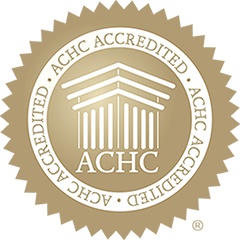Health Education
CORONAVIRUS (Covid19)
The novel coronavirus (officially called COVID19) is believed to spread from person to person, primarily through respiratory droplets produced when an infected person coughs or sneezes. The virus is also believed to spread by touching a surface or object and then touching one’s mouth, nose, or possibly the eyes.
Everyone should follow these general practices to help prevent exposure and the spread of the coronavirus disease:
- Frequently wash hands with soap and water for at least 20 seconds.
- If soap and running water is not available, use an alcohol based hand rub sanitizers that contains at least 60% alcohol.
- Avoid touching your eyes, nose, mouth with unwashed hands.
- Avoid close contact with people who are sick.
- Practice social distancing; at least 6 feet apart when in public places.
- Utilize PPE such as mask when in crowded places.
- For any signs and symptoms of COVID19 such as fever, coughing, shortness of breath, sore throat, diarrhea, please notify your local health provider or call 911.
- For the latest information on the symptoms, prevention and treatment of coronavirus, visit the Centers for Disease Control and Prevention Coronvirus webpage.
Parkinson’s Disease
Parkinson’s disease is a progressive neurological disorder that results from degeneration of neurons in a region of the brain that controls movement. Parkinson’s disease (PD) belongs to a group of conditions called motor system disorders, which are the result of the loss of dopamine-producing brain cells.
The primary symptoms of Parkinson’s disease are:
- Tremors or trembling in hands, arms, legs, jaw, and face
- Rigidity, or stiffness of the limbs and trunk
- Bradykinesia, or slowness of movement
- Inability to move (akinesia)
- Postural instability
- Impaired balance and coordination
- Slow movement (bradykinesia)
- A shuffling gait
- Stooped posture
- Foot pain and toe curling
- Difficulty swallowing or chewing
As these symptoms become more pronounced, patients may have difficulty walking, talking, or completing other simple tasks. Parkinson’s disease usually affects people over the age of 50. Early symptoms of PD are subtle and occur gradually. In some people the disease progresses more quickly than in others. As the disease progresses, the shaking, or tremor, which affects the majority of people with Parkinson’s may begin to interfere with daily activities. Other problems associated with Parkinson’s include:
- Depression and other emotional changes
- Difficulty in swallowing, chewing, and speaking
- Urinary problems or constipation
- Skin problems
- Sleep disruptions
There are currently no blood or laboratory tests that have been proven to help in diagnosing sporadic PD. Therefore the diagnosis is based on medical history and a neurological examination. The disease can be difficult to diagnose accurately. Doctors may sometimes request brain scans or laboratory tests in order to rule out other diseases.
Different types of Vitamins
Vitamins, one of the most essential nutrients required by the body, can be broadly classified into two broad categories namely, water-soluble vitamins and fat-soluble vitamins. Water-soluble vitamins (B vitamins and vitamin C) get flushed out from the body; therefore there arises a need to consume these vitamins on a daily basis. On the contrary, fat-soluble vitamins (Vitamins A, D, E, and K) get stored in the body’s fatty tissues. There are distinctive kinds of vitamins and each vitamin play a unique role in promoting health fitness.
Here is a list of different vitamin types:
Vitamin A: it helps a great deal in improving your eyesight. Also it aids in maintaining healthy skin. Rich sources of vitamin A are: eggs, milk, apricots, carrots, spinach and sweet potatoes etc.
Vitamins B: vitamin B is a list of multiple vitamins like B1, B2, B6, B12, niacin, folic acid, biotin, and pantothenic acid. Vitamin B aids in generating energy that the body utilizes to carry out its activities. Vitamin B also participates actively in making red blood cells that carry oxygen to different parts of your body. Rich sources of vitamin B include whole grains, such as wheat and oats, fish and seafood, leafy green vegetables, dairy products like milk and yogurt, beans and peas etc.
Vitamin C: it helps in strengthening your gums and muscles. Vitamin C found in citrus fruits like oranges, also aids in healing wounds. It enables you to overcome infections. Foods rich in vitamin C, apart from citrus fruits are: tomatoes, broccoli, cabbage and strawberries etc.
Vitamin D: it works towards strengthening your bones and teeth. It also aids in absorbing the calcium required by the body. Foods rich in vitamin D are: fish, egg yolk, milk and other dairy products etc.
Vitamin E: It takes care of your lungs and also aids in formation of red blood cells. Good sources of vitamin E are: whole grains, such as wheat and oats, leafy green vegetables, egg yolks, nuts etc.
Vitamin K: vitamin K helps in the maintenance of normal levels of the blood clotting proteins. Good sources of vitamin K are: leafy green vegetables, dairy products, like milk and yogurt, pork etc.
Hypoglycemia(low blood sugar)
What You Should Know, What You should Do.
- Low blood sugar can happen even when you’re doing all you can to manage your diabetes
- Common causes of low blood sugar include certain diabetes medications, missed meals , or more activity than usual. If you have any of these symptoms, check your blood sugar right away.
- You should tell your health care provider (HCP) about any symptoms you experience
Check any symptoms that you experience (Symptoms may be mild at first but may worsen quickly if not treated)
- Dizzy
- Shaky
- Anxiety
- Nervous
- Tired
- Grouchy
- Light-headed
- Sweaty
- Hunger
- Confusion
- Weak
Take action quickly if you have low blood sugar.
1.If your blood sugar is below 70 mg/dl or if you have any symptoms, take ONE of the following quick fix foods:
- 3 or 4 glucose tablets
- 1 serving of glucose gel (equal to 15 grams of carbohydrate)
- 1 cup of milk
- 1/2 cup of fruit juice
- 1/2 can of regular soda pop(not diet)
- 5 or 6 pieces of hard candy
- 1 tablespoon of sugar or honey
Wait 15 minutes. Check your blood sugar again
If your blood sugar is still 70 mg/dL or if you do not feel better, repaet step 1 every 15 minutes until blood sugar is 70 mg/dL or above.
If your next meal is 1 hour or more away, eat a snack once your quick-fix foods have raised your blood sugar to 70mg/dL or above.
Call your HCP if you do not feel better or if your blood sugar stays low (below 70 mg/dL)
Ask your HCP about medications that may be less likely to cause low blood sugar.
How do infections spread?
3 conditions must be present.
- First, there must be a disease-causing organism, such as a virus or bacterium.
- Second, the organism must have a place to live, such ass in or on the human body. Germs may also live on objects such as door handles or bedrails, or in substances such as human wastes.
- Third, germs need a vulnerable host. They need a person who cannot fight them off-for example, a newborn, an older person or someone who is ill or injured.
Next, germs need a route of transmission.
For a disease to spread, germs must have a way to travel to their hosts.
Different germs travel in different ways, for example:
- by contact between people, such as when shaking hands
- by contact between people and objects, such as when touching doorknobs, utensils or medical equipment
- in droplets from coughs or sneezes
- on other particles that travel through the air, such as dust or pollen.
GERMS OFTEN ENTER THEIR HOSTS THROUGH THE MOUTH,EYES OR NOSE OR THROUGH A WOUND.
You can help stop infections. Standard precautions help protect everyone.
How does standard precautions work;
- gloves ,masks, goggles and other protective gear. if contact with blood or other body fluids or substances is possible, all staff and visitors must wear appropriate protective items.
- proper disposal of items that may be contaminated.
- proper cough etiquette ( use tissue and throw it away properly and clean your hands after)
HAND HYGIENE IS ALSO A KEY TO STANDARD PRECAUTION.
- Wash hands often and well
- An alcohol-based hand sanitizer is also an option
Health Education
Antiplatelet TherapyPlatelets
Antiplatelet Therapy: Platelets are cells in the blood that help us make blood clots. This is a normal body function. If you have heart disease risk factors (such as smoking, high blood cholesterol, high blood pressure, or diabetes) your platelets can clump together more easily and can form a more serious blood clot. Blood clots can be a problem especially if they are in your heart, brain, or other arteries in your body. Antiplatelet medicines help to prevent these blood clots.Often used antiplatelet medicines:*Aspirin and Plavix (clopidogrel), Heparin and Enoxaparin administered subcutaneously are other forms of blood thinners.
OTHER ORAL ANTIPLATELET MEDICINES: Pletal(cilostazol), Persantine (dipyridamole), Ticlid(ticlopidine).
WHAT ARE TRIGLYCERIDES AND HDL?
Triglycerides (TG) are fats found in the blood. They are affected by weight, lifestyle, diet, and family history. LOWER IS BETTER.HDL is called the “good cholesterol” because high levels of HDL can help protect against heart disease. HIGHER IS BETTER. Why are they important? High trigycerides and low HDL increase your risk for heart disease.


Our Services
Skilled Nursing
Our skilled nursing services will be performed by our Registered Nurses (RNs) and Licensed Vocational Nurses (LVNs) under the supervision of your physician.
Occupational Therapy
Occupational therapy is for patients who have diminished cognitive, physical and motor skill capabilities due to injury or illness.
Personal Assistance Services
AgapeCare Personal Assistance Services provides a variety of personalized non-medical assistance and services.
Medical Social Worker (MSW)
Our Medical Social Worker can assist you with Advance Directives, long range planning, community resource referrals, caregiver stress and short term counselling.
Physical Therapy
Our physical therapists will work closely with you to assess and evaluate you, your condition and living environment to create a custom plan to suit your needs.
Home Health Aides
Perform activities of daily living (ADL) assistance care services for patients including checking vital signs, reminder of prescription medication, etc.
Speech Therapy
Our Speech Therapist can work with your Speech/Language and Swallowing Disorder as ordered by your doctor.

